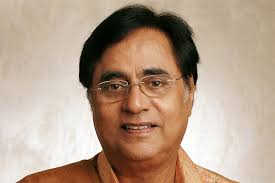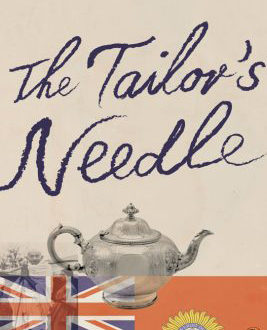#Pakistani #TV Serials
Pakistan may have gone down economically in the last few decades and suffered infamy because of its frequent stooping into the pit of terrorism but there is one aspect of this country that has given consolation to its masses. Their artistic endeavours have been phenomenal in the sphere of television drama, music, poetry, and other arty skills. Mirza Ghalib has always inspired the artistic mind of this nation and this has ghaliban (presumably) been behind the refinement in their creative thought and action. What seems indeed strange is that in spite of the rampant violence and vendetta that we hear of in Pakistani society, their classy fiction and television serials are soothing and storehouses of peace. I do not want to give the impression that all their serials and novels are cordoned off from violence. I speak particularly of some of the best TV dramas that have been in existence since the 1980s or so. The quality of these serials has been steadily increasing and they have provided a contrast to the bloodshed, unrest, and violence that are reported in that country. Their fiction and dramas are indeed edifying and that is what the function of good literature and scriptwriting should be; they should be written with what ails society in mind. The premium Pakistani novelist or scriptwriter has always come forward as a responsible member of society to set things right in an otherwise disturbing situation. If the leaders have not been responsible, the writers of Pakistan and their telefilm counterparts have more than made up for what ails the nation.
These dramas take us deep into the private and public lives of people. The problems of women, particularly, are highlighted. We are shown how women often have to suffer quietly and have little option but to remain in that plight for years; sometimes decades. Their sufferings are peered into through artistic and aesthetic renderings that give viewers the delight that tragedy has the potential to give. Pakistani dramas are still simple and uncomplicated in the way they move towards what Aristotle may have meant by Catharsis. We are shown individuals suffering under the pressure of society and ultimately finding ways out mostly by divine interference. These dramas seem to suggest that God is still there if you choose to remain with Him. This is a stark contrast to what may be the actual situation in the lives of Pakistanis. But they are still on the side of faith and faith gives them an anchor, stopping them from drifting away.
One reason for the gripping power of Pakistani plays is the decorum that is reflected through the culture that these plays display; the positive side of social existence. Social life is not as easy to cope with as it might seem to be. It involves a continual sacrifice and surrender of the individual to the community and family. What is extra-ordinary about Muslims is the extent they go to maintain the decorum of social life. At least on the face of it, men and women suffer a great deal, quietly, in order to maintain social traditions, etiquette, and relationships. In this, the Pakistanis are a little more traditional than Indians. Patriarchal authority flows through their veins with a greater grip on their emotions and passions. They rarely rebel against it in very open forms. They show all their disapproval in a highly subdued manner, never forgetting that their success depends on the goodwill of the community. Their culture incorporates the realization that individuals are nothing if not social and collectively responsible for their families and friends. One could say that the West is yet to change Pakistan’s basic views on what relationships ought to be. Pakistani plays seem to be a panacea for contemporary life globally. The lack of a communal philosophy can be ruinous, as it sometimes is in the contemporary world; Pakistan is fortified by a communal philosophy. They are not ashamed of owning it, just as the pre-partitioned India was not ashamed of owning it. The chains of tradition also tie up a people with security.
The importance of the line “Sab theek ho jayega” ( all will be well) in fiction, and in life, comes as a result of intense faith in the powers that be. This is somewhat missing in our lives and therefore there is so much emptiness in contemporary living. Characters, such as Arjumand’s mother in Diyar-e-Dil, and Rasheeda Bibi in Udaari, (keep saying this in spite of the utter dejection in which life places their dearest ones. Rafiya Murtaza, in Zindagi Gulzar Hai, is remarkable for the way in which she able to overcome all hardships because of this philosophy and because of faith in the Almighty. These dramas remind us that with faith even contemporary times can be made meaningful just as the fragmented nature of our existence can be mended. One gets the impression that with faith life is complete; without it, it is in pieces.
Why do these plays soothe us? Because they contain conservative and traditional patterns of behaviour and therefore make people see what they find missing in their lives. Whereas we want to prove ourselves socially correct, we often find it too cumbersome to succeed in doing that. We, unwillingly, fall into patterns of modernity or, at times, even deviance. Tradition gives us patterns or designs to follow in life. Those who follow these patterns suffer hardship and pain but prove victorious in the end. These patterns, of the good being rewarded and the evil punished, for instance, are aesthetically knit into the plots of the plays and they give us some kind of satisfaction or jouissance. We stick on as their audience in spite of the tendency in some of the plays, like Diyar-e-Dil, to drag in patches.
Some the dramas that contain the features described are:
- Zindagi Gulzar Hai
- Humsafar
- Daam
- Sadqay Tumhare
- Mann Mayal
- Alif
- Diyar-e-Dil
- Udaari
- Aangan
- Mera Naam Yusuf Hai
- Kashf
Tradition can be considered the opposite of modernity just as too much involvement with religion can. We know that modern times have been conspicuous by the lack of a communal philosophy. But it is religion and tradition which are like opium for the masses. By choosing to ignore unpleasant contemporary features, Pakistani plays are able to keep their focus on something that will act as opium for the masses. Pakistani plays may lack contemporary dramatic techniques or in contemporaneity itself, but they highlight the kind of company we should keep to win in the end.
They do, sometimes, show aspects of postmodernity just as Kashf incorporates magical realism by making its plot revolve around the dreams of its protagonist.
Pakistani dramas point to their society, “art still has truth, seek refuge there” what Matthew Arnold had pointed to his own. Life should imitate art if it needs to improve whatever seems to be going wrong in Pakistan.


